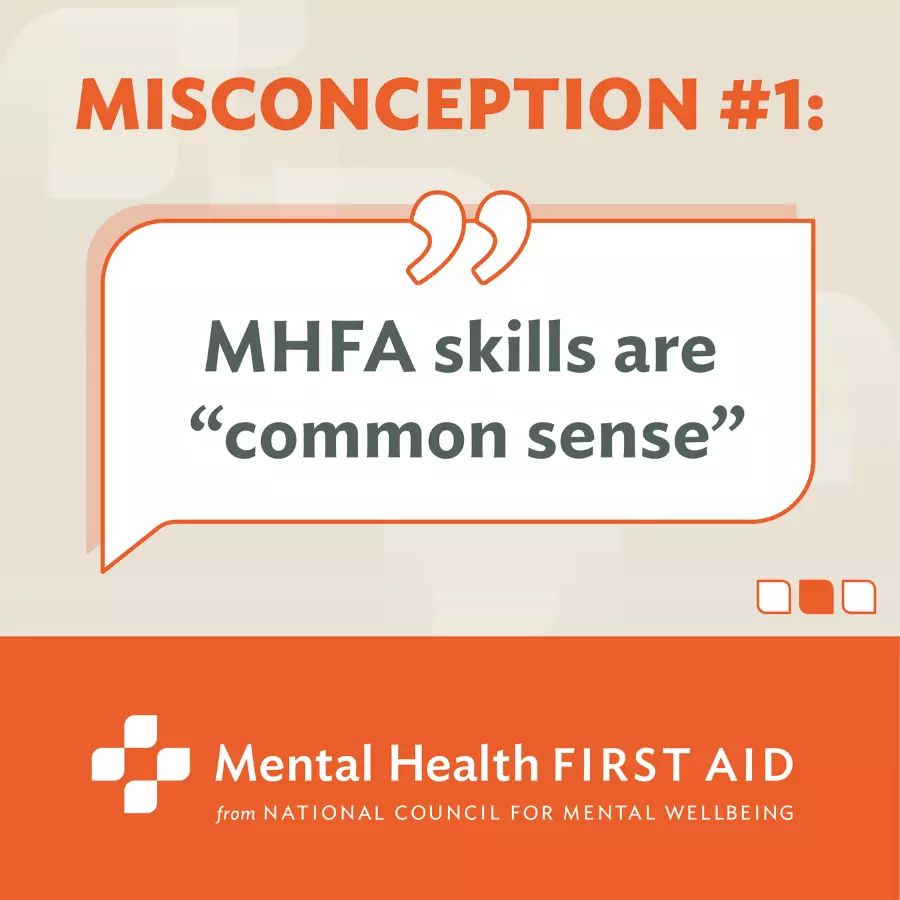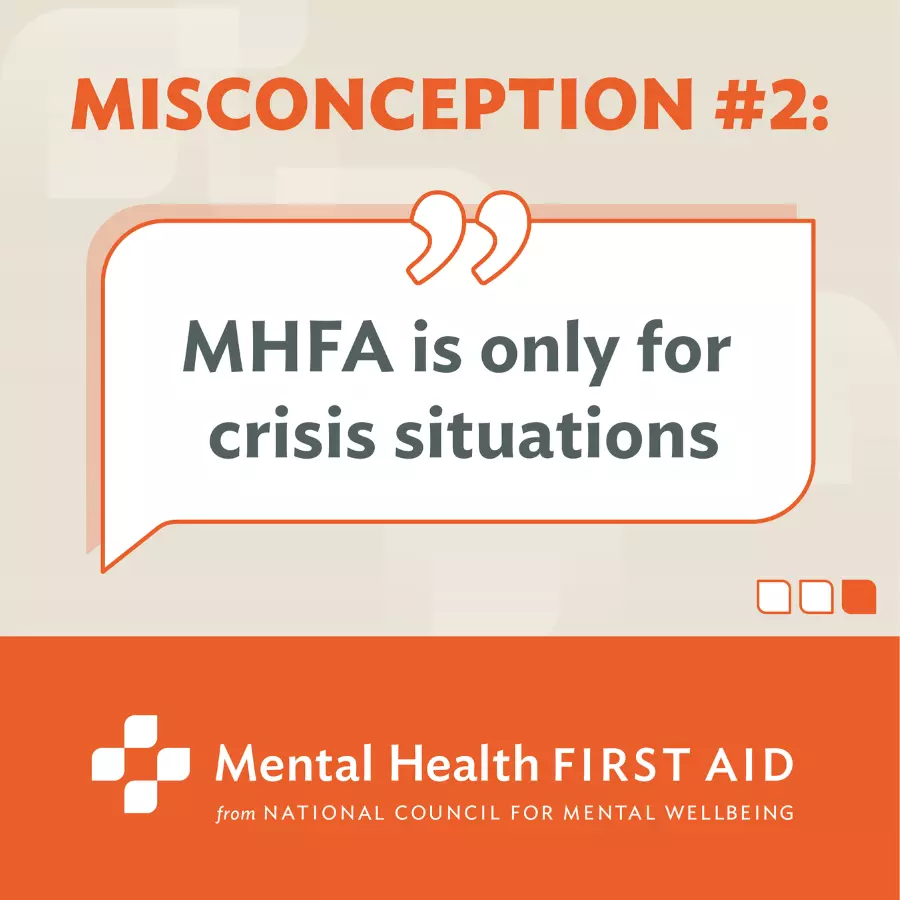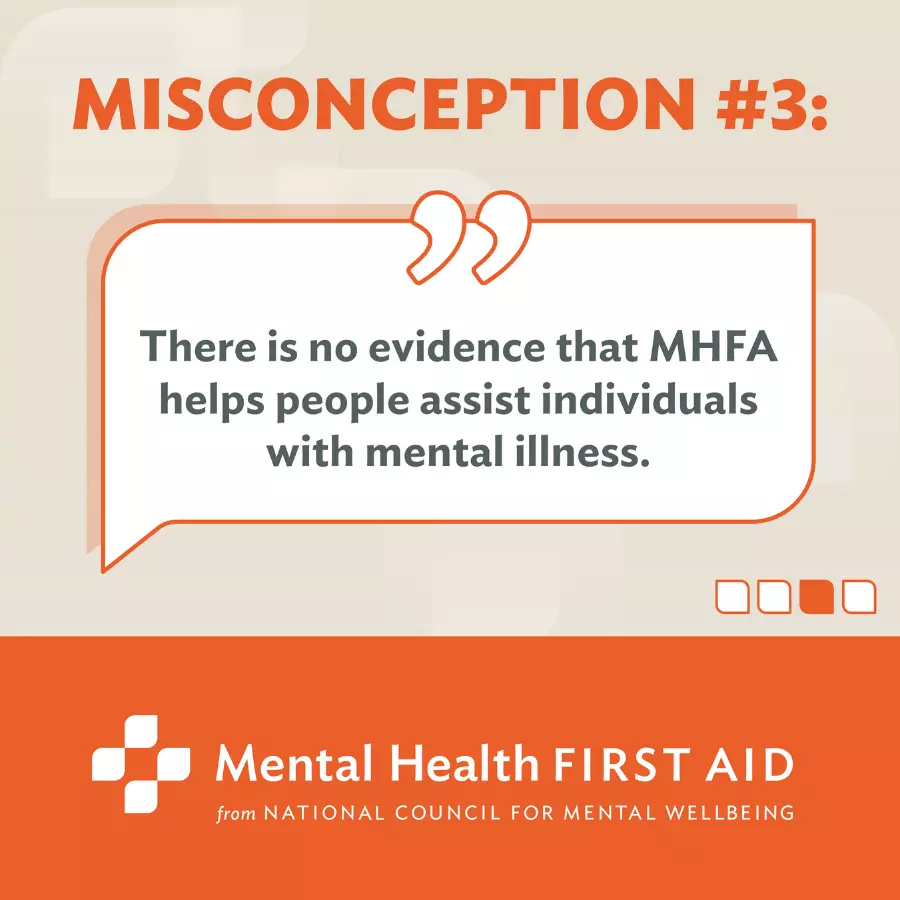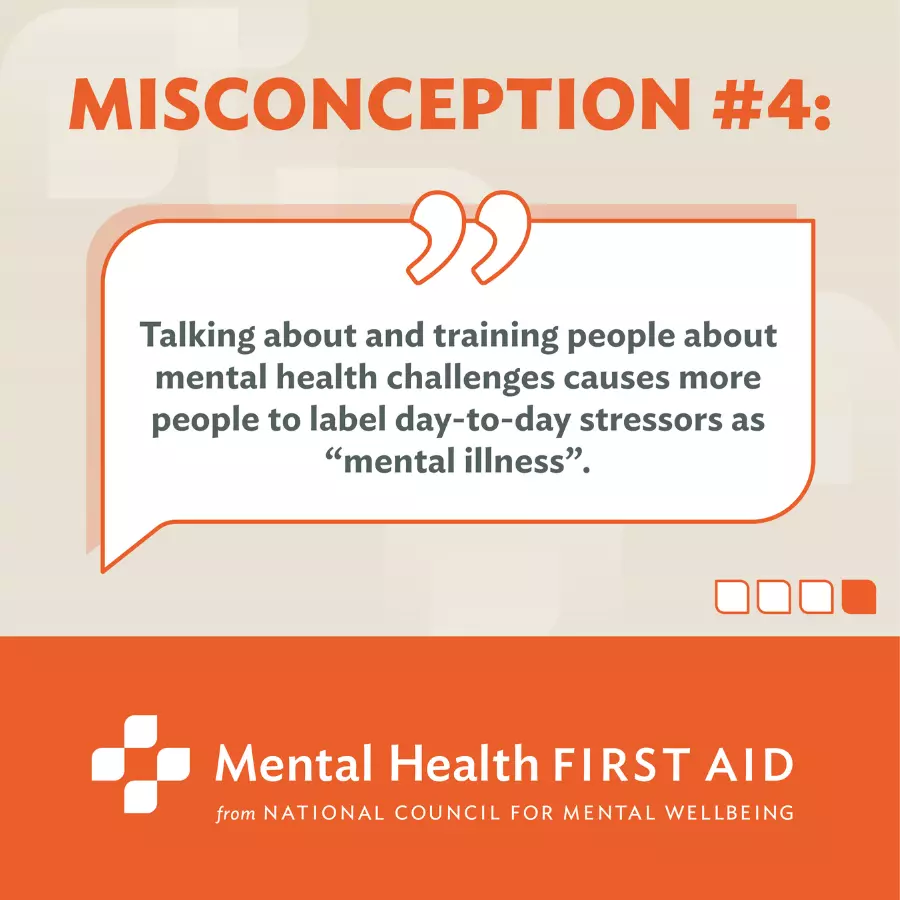Mental Health First Aid’s (MHFA) main goal is to teach individuals how to identify, understand and respond to signs and symptoms of mental health and substance use challenges in their friends, neighbors and coworkers. MHFA does not teach individuals how to diagnose or treat mental illness or substance use, but it equips them with crucial skills for providing assistance.
MHFA programs continue to be a valuable resource, as is evident by their continued and ever-expanding implementation across communities in the U.S. However, people and organizations who are not as familiar with our programs may have misconceptions around the need for the program and the contexts in which the skills learned in the program are useful.

According to a KFF poll conducted in 2022, 75% of US adults report not feeling comfortable or only feeling somewhat comfortable discussing mental health with loved ones. Factors that impact an individual’s level of comfort when discussing mental health include stigma and being uncertain about how to approach someone and what is appropriate to say.
The content and activities in MHFA courses provide participants a safe place to practice responding to signs and symptoms of mental health and substance use challenges, which they can then more confidently apply outside the course.
That practice pays off. Completing MHFA courses has been shown to increase learners’ intentions and confidence to help someone in need.

People who complete MHFA courses serve as an important link to early intervention. MHFA courses teach the 5-step MHFA Action Plan (ALGEE) and provider learners with opportunities to practice applying the Action Plan to scenarios depicting early, worsening and crisis situations.
The skills learned in MHFA can help people assist someone showing early signs of mental health or substance use challenges and intervene in crisis situations. Without help, mental health challenges can disrupt a person’s ability to work, attend school, carry out daily activities and engage in satisfying relationships. Using MHFA skills outside of crises can connect individuals to resources early on, preventing their condition from worsening.

Previous research has documented that individuals who completed the MHFA training used their skills to provide an array of support to someone who may be experiencing a mental health or substance use challenge.
One study (Witry et. al., 2020) found that after taking the MHFA training, 82% of participants used their skills to ask someone about their distress. About a third of these participants reported doing so four or more times. Additionally, around 61% of participants had used their skills to refer someone to professional resources.

Since the COVID-19 pandemic, it seems many people are more open to discussing mental health; however, not everyone may have the knowledge and language to do so. MHFA provides an opportunity for individuals to learn about signs and symptoms of mental health and substance use challenges as well as how to assist someone in need.
MHFA emphasizes that the role of the First Aider is not to diagnose, but rather to observe, listen nonjudgmentally, and serve as a vital link to early intervention. In early 2024, First Aider Seva Reilly told us, “My MHFA training has helped me have the courage to ask the question ‘How are you doing?’ and to deeply listen to the response, to hear what is not said, to create a space for sharing and to encourage the people in my life to practice self-care.”
Visit MHFA.org for more information about the research conducted on MHFA programs in the U.S. and to find a MHFA course near you.
Sources: